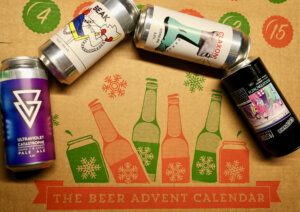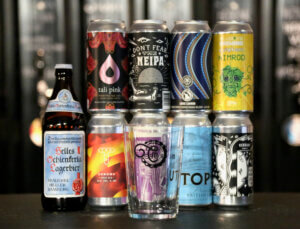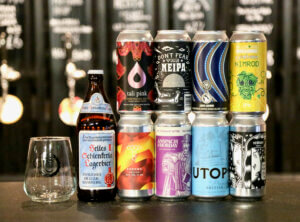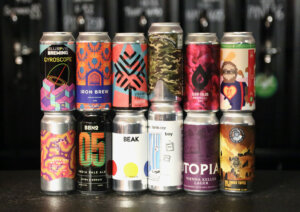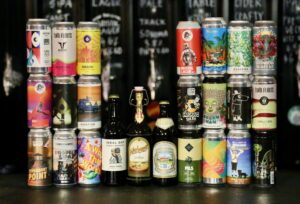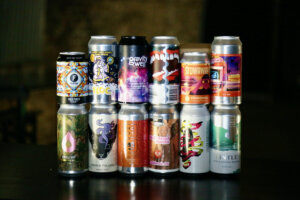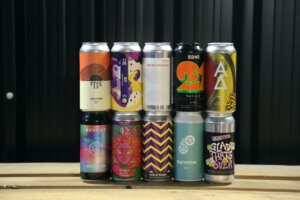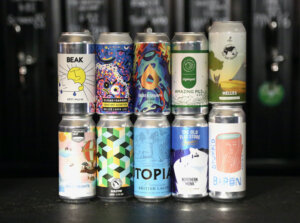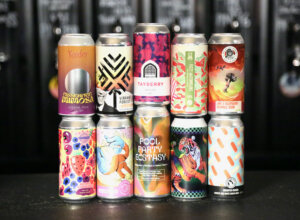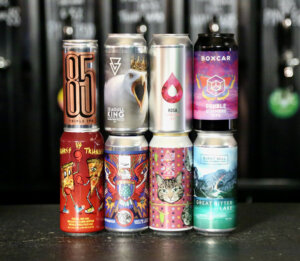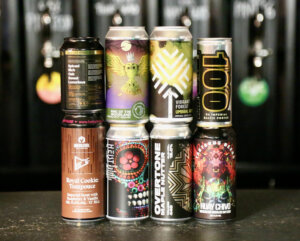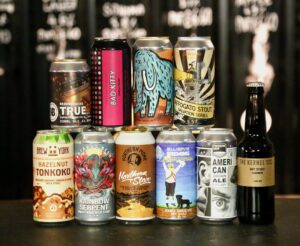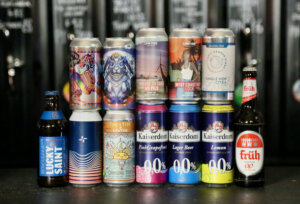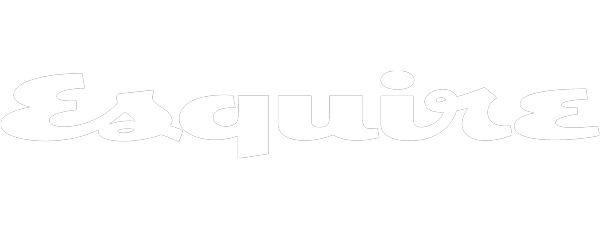*** LAST POST HAS PASSED. BACK POSTING TUE 30TH DEC. BARS OPEN AS PER GOOGLE LISTINGS. HAVE A GREAT CHRISTMAS!***
Posted on 24/05/17
The world of beer is clearly divided. Real ale or craft beer the lines are blurred and both craft beer and real ale has a history of being advisory towards each other. It’s got to the point where most people know where they sit in terms of their preference but what both groups will admit is that the two groups are utterly intertwined – but are they growing apart or coming closer? It depends on what part of the debate you sit on. When looking at the products found at craft beer clubs such as Craft Metropolis the clue is in the title “Craft” Metropolis but it’s also easy to see some beers that are marketed as ale, real or otherwise. Read deeper into the FAQ and the beer club barons want you to amke you mind up, they just stock good beer and let you choose where on the beer barometer you are. Listed on Craft Metropolis as ale are the likes the Brockley range or beers from the Wimbledon outfit. So the lines are clearly blurred. Breweries themselves are probably confused – or if they are honest maybe undecided form marketing standpoint – about the definitions ad where they can place their product, such as Richmond Brewery who can’t decide whether to push their beer as real ale or craft beer. It’s a scary world to look on as a traditional brewer to see the craft beer banner flaying higher and higher and resist the urge to pop a “craft” line on the headline of the label. Brewtown Tours argue that differences in taste and process differentiate the two terms and this is probably the most accepted moniker for the new wave of beer that’s been pounding these shores for a good few years now. Glastonbury Ales claims to brew both craft beer and real ale and argue that the process and amount of yeast used differs real ale and craft beer. It seems the answer to the question is as murky as the question it’s self.
According to a recent article in Beer Dock the Craft Beer movement originated from the USA, it came about from home brewing fans that wanted to fight against the mass-produced lager that had came about from the post-prohibition era of the United States. After prohibition was lifted three huge mega corps ran an oligopoly on beer was found in the United States. The home brewers who fought against this initially only wanted to brew for themselves and their friends but eventually grew to start brewing on commercial scale. This eventually caught on in London, and the rest of the UK before moving towards the global market and spawning somewhat from the established real ale breweries,
This Real Ale movement originates in the UK and comes from traditional old ales that lost their popularity with development of refrigeration, and the popularity of lager. Alcohol was never prohibited in the UK but real ale might have seen the end of days if Brew Dog and what they penned recently in their blog has any weight. Their statement was that that real ale has now become redundant and no longer means anything. They claim that the changes in the procedure of which how craft beer is produced since the 1970s has now made craft beer within CAMBRA’s definition of real ale. Arguing that what defines craft beer is being “****ing awesome regardless of arbitrary rules and out-dated distinctions. They argue that the stylistic diversity as well as the branding give craft beer a stark difference to real ale.
However it’s important to stress although both are movements in their own right neither phrases are official terms. “Real ale” is a term coined in the 70s/80s to try to differentiate mass produced fizz from “real” and to sell it more.What it drills down to is marketing. “Real” was added to try to drag beer made in a more traditional methods away from what was an 80s sink-hole of lager advertising and consumption. Craft beer in itself isn’t dictionary either. It’s a marketing term again. Both, everyone agrees are simply beer but it’s human nature to box things in, label them and start to pitch A against B. We’ve always wanted to see beer live in harmony – real ale exist in the same space as craft beer – if anything the blurred lines should put pressure on the beer industry to produce good quality beer.
Craft beer was just a moniker attached to small breweries and has thus become its own marketing term. Craft Beer appeals to a different market, its more young, trendy and urban. The history surrounding the emergence of the movements along with the geographical context have impacted the use of the separate terms, however as CAMRA now tables a motion to accept craft beer aiming reducing restrictions on labelling it appears the future of the two movements will become intertwined. More worrying for the beer industry is that bigger beer brands have not only started hoovering up the breweries they are very much latched into the term too. Why not brand their big brewery beer “craft”? It is trendy and sells at the moment. Even worse is slinging the term onto any expensive beer on an mass-produced list of corporation beers. But then why not – it seems no one knows what craft beer really is unless it’s your personal preference. What’s for sure is you don’t see big brands falling over themselves to chuck “real ale” onto their new products which tells the whole story here. It’s a story that will change more over the next 5 years than the last explosive 15 for the beer industry but one thing is certain; they be the same product but it seems the battle of the beer naming convention has only just begun.
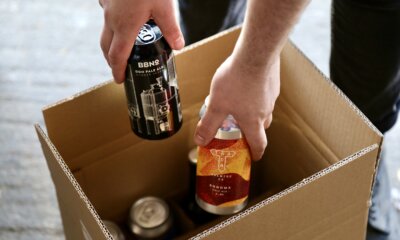 Step 1
Step 1
We trawl the globe tasting great beer
